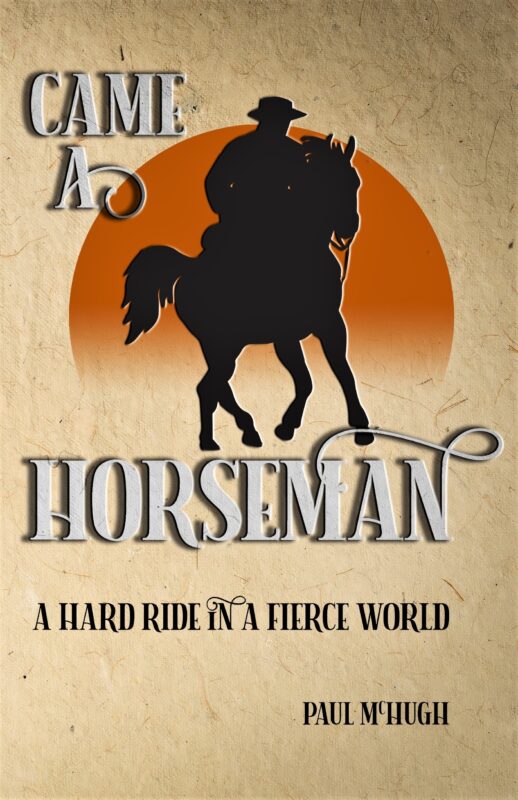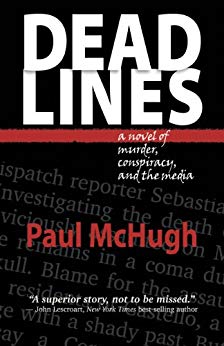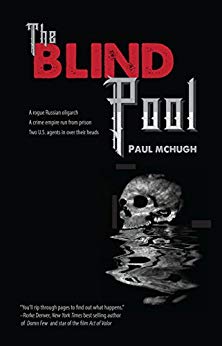San Francisco Chronicle
California North Coast Series
By Paul McHugh, Outdoors Writer
October 15-16

Our beach camp was threatened twice by high tide and large swells. Photo by Paul McHugh.
It was a fine problem to have.
After many weeks of wrestling Pacific storms, ripping up our navigation plans then taping them back together, we’d touched the bay’s golden threshold. The end of our trip loomed just ahead. However, we now were afflicted by a full day of spare time.
Our actual day of arrival was scheduled for tomorrow, Sunday, and it just wouldn’t do for us to try to sneak across our finish line early. Oh no, there was considerable hoopla out there that needed to be embraced… which I knew all too well, since I’d done my level best to stir it up.
Audition for an Audience
Our voyage might’ve been a highly personal adventure, yet it also had been orchestrated into a mass-media happening. We’d steadily appeared on the paper’s front page, been featured in reports broadcast over AM/FM radio and network TV. This North Coast voyage of exploration was the apogee of my two decades of writing at the Chronicle, and I desired to make as big a splash with it as I could.
Besides promoting it to media at large before we’d launched, I’d also persistently dunned local outlets while we traveled.
The net result: a small crowd of big fans of the trip would likely be on hand to welcome us when we made our predicted landfall – at Crissy Field Beach on the north side of San Francisco.
We couldn’t disappoint those folks by a failure to appear at the appointed hour. There’d also be TV cameras present, my bosses from the paper, and a strong coterie of family and friends.
Which posed a genuine problem.
What would I tell them all?
Groping for the Right Words
I needed to cook up some sweeping overview statements that could summarize the meaning of our trip w/o being pompous or presumptuous, plus stir in some inspirational comments that did not sound boastful or cocky.
Boy, did I ever have my work cut out for me.
So Weed and Barnes took off by themselves early on Saturday morning to head to Sausalito and take part in the Sea Trek Regatta – the West Coast’s oldest and biggest open-water paddle race. (I did not doubt that our training regimen of stroking along for hundreds of miles would let the lads acquit themselves with honor, then cover themselves with glory, ribbons, medals, honorable mentions or whatnot.) Meanwhile, I walked on the beach, hiked up into the valley, chewed on grass stems, twiddled my thumbs, gazed out over the water, and pondered what I might say.
That world-famed Golden Gate Bridge had put on quite a show for me this morning, first with a spectacular sun-up ablaze behind it, next as the sun rose higher, its towers performed a chiaroscuro fan-dance involving drifting wisps of fog.
Sourcing a Golden Gate
It prompted me to consider that the “Pathfinder” – Army captain John C. Fremont, a visionary explorer and resolute opportunist – did the world a great favor by calling this strait The Golden Gate, since that name suits the site just about perfectly. Some imagine he did so to respond to a gilt morning like this one, with peachy light rebounding from amber cliffs. Or that he did it to praise argonauts of the Gold Rush, who’d flooded through this strait to alter the landscape and its political and social future with such wanton profligacy. (Fremont had participated by linking his scouting regiment with the Bear Flag rebels in 1846; a move that put the ragtag coup over the top and helped usher California into the Union.) But, no. Fremont had named it in Greek, “Chrysopylae,” (Golden Gate), merely because it reminded him of images he’d seen of a harbor in Turkey called the Golden Horn (Chrysoceras).
Nevertheless, a Golden Gate cognomen makes a good caption for the dreams of many who sought this portal to refuge, who escaped violent storms to seek shelter in the bay’s anchorages, who fled vast and lonely seascapes for the harbor’s colorful bustle, who sailed from distant ports and risky north coast “dogholes,” gambling on the opulent rewards they’d win if only they were able to offload their cargos on San Francisco wharves.
So, this strait has welcomed merchants and immigrants, refugees from everywhere, and soldiers returning from war. The act of making it into this harbor with your personal safety and your goods intact eventually turned grandly symbolic. Crossing the bar underscored the human hope of performing a quest that pays off. Hopes for peace, plans for prosperity, drove many over the bounding main and in through the Golden Gate.
Maybe I could talk about that.
A Species of Spectral Harvest
But I’d have to specify that my cargo manifest held only bundles of memory and discovery. I bore a harvest of ideas from the North Coast, principally this one: The region’s beauty isn’t solely a legacy of nature, but a bequest by citizen crusaders who fought long battles to preserve and protect the shoreline, and watersheds for miles inland. We owe it to them and our descendants to not only to save, but even to enhance this coast’s grand beaches, lush forests, pure streams and wild salmon. It’s one of the finest gifts our generation could ever bestow upon the future.
I also thought about celebrating the North Coast’s tradition of self-reliance and can-do activism. This pioneer mindset survives, even thrives, in most enclaves on the coast. I don’t claim that these communities face zero problems as a result! But while California and our nation seek to navigate a course to a sustainable future, we can take heart from this reminder that the tools of collective democracy and individual enterprise remain potent. Take them up, employ them locally; learn how they apply on a grand scale; and soon we might find ourselves dismantling difficulties, rather than watching them grow.
We should never let ourselves be paralyzed by the terror that comes from outside, or a fear of an error from within. The best part of our human spirit always strives to forge ahead, no matter the odds. True life can be lived in venturesome style if we fully embrace responsibility, appreciate blessings, solve problems whenever they crop up, and cope with hazards as they come.
OK, those would be my themes. But as far as use of specific language to parse them? Just have to let that well up in the moment, or I’d come across like a phony.
Barnes and Weed returned from the Regatta, buoyant with enthusiasm, and said that a number of the paddlers had promised they’d show up on Sunday morning and escort us in to our landing at Crissy Field.
Full Immersion in My Topic

As we polished off our grog, ambient lights took on a surreal aspect. Photo by John Weed.
As daylight faded, we proceeded to enjoy a celebratory dinner – I think we ate take-out burritos that Jim Irwin had purchased in San Rafael and brought down to us. That was fabulous, because our own hobo stews had worn out their welcome quite some time ago. As the sun sank and night fell with the speed and assurance of a boulder pitched off a cliff, we decided to lighten ship by swallowing all of our remaining grog and consuming whatever other party consumables we possessed in our stores.
Consequently, we were all many sheets to the wind (and I do not exclude a certain Chronicle photographer from the tipsy condition of our merry crew) while the tide came up and a swell even larger than that we’d seen on the previous night (11 feet at 13 seconds) began to rumble ashore. A line of wet, black sand crept inexorably toward our tents. I insisted we remain up and awake until it crested at 11 p.m., in case an evacuation proved necessary.
We wound up playing chicken with the onrushing scallops of cold water rinsing toward us across the slope of the beach. This meant lying face-down on the sand, and letting the edge of the seas almost touch our hands and heads. Suddenly I leapt up, under the impression I was about to get drenched. Barnes laughed and mocked me as perhaps a bit of a wuss.
“OK,” I said. “Fine.”

Paul McHugh just before he stripped and dove in the water. Photo by John Weed.
I peeled off my clothes, dropping them in a heap by my tent. And as a swell slid back, I ran stark naked right after it, splashing through its shallow backwash. As soon as I reached the steep edge of the beach, where deep and dark water coursed along on a rapid ingress to the bay, I dove forward.
I’d inhaled a big breath just prior to full immersion. I set my jaw to lock down that breath now and to help resist the shock of cold water as I sank, curled myself into a ball, clasped my arms around my knees, and just let myself bounce along on the bottom. I figured I had a couple seconds to soak before I’d get swept past the end of the beach – at which point I’d be deprived of any chance to return.
Time was up!
I straightened out, breast stroked twice, touched bottom, churned back up the sandy slope into air.
Barnes’ eyes were wide as I sprinted toward our group, as if he couldn’t quite believe what he’d just seen. “Did you go in? Did you put yourself all the way in?”
“Yep.”
He salaamed.
I jogged over to my clothes, thrust them back on as quickly as I could, crawled into my tent and sleeping bag, and proceeded to shiver for nearly an hour – while trying to assess the act I’d just performed. My judgment came as a pair of adjectives: it had been stupid, yet memorable. I smiled and went to sleep.
Our Big Trip’s Final Day

A gorgeous sunrise glimpsed from Kirby Cove. Photo by John Weed.
That Sunday morning dawned in mid-October with an uncanny resemblance to a spring day. Air temps were balmy, the breeze mild. We weren’t due to land at Crissy Field until 1 p.m., so I looked forward to a leisurely breakfast, followed by a methodical stint of packing up. But the kayak paddlers who wished to escort us in showed up way early, like 10 a.m., and Barnes and Weed both jittered with eagerness to get going. Finally I launched near 11:30 a.m., and we farted around for a while, weaving back and forth under the bridge and curving in toward the sea wall at Fort Point.

Our kayaks and escorts approach Crissy Field Beach. Photo by Michael Maloney.
As we drew nigh to Crissy, even a few swimmers stroked out to greet us. Then I could see my wife’s broad grin, letters on a banner of welcome stretched between two poles, big cameras on tripods, many others handheld, and scores of waving, cheering people. Neat! I thought.

All ashore that’s going ashore. Photo by Michael Maloney.
After I beached and clambered out of my kayak, I fell to my knees and kissed the soil of home (hey, if that maneuver’s good enough for the pope, it’s good enough for me) hugged and kissed Dawn, wrapped my lips around the neck of a bottle of champagne, slapped backs, shook hands, posed for photos, held still for interviews, shook more hands, accepted kudos from an impressive array of Chronicle editors, and uttered what I hoped were meaningful and coherent sentences.

Paul McHugh and Dawn Garcia enjoy a triumphant reunion. Photo by Michael Maloney, S.F. Chronicle.
After about an hour or so, the tumult faded, and our team’s farewells were exchanged. I dressed in dry street clothes, stuck my sea kayak up on the roof of the car, strapped it down. Then it was over. I felt empty and full at the same time, elated and oddly melancholic. As I drove Dawn, myself, and the boat home, I marveled over the strangeness of steering a car, and having to deal with the onrush of auto and truck traffic rather than wind, current and waves.
Our Lessons Never End

Dawn Garcia, Paul McHugh, and Mom and Pop Garcia at Crissy Field Beach. Photo by Dawn Garcia.
I mulled over what I’d said into the cameras. I hoped I’d been able to accurately give my one memorized quote, a bit of the native wisdom of “Totem Salmon,” from the book by Freeman House. “Pay attention to the landscape, to what the animals are saying to you. Look to the long term… Be attentive; listen to what the planet is saying; it’s alive, all of it.”
And during that drive home I thought also on what I did not say. I regretted that I hadn’t so much as mentioned that nasty plume of brown air, the immense polluted exhalation I’d seen billow out from the Bay Area to spread across the sea. The omission made me feel some guilt, perhaps even a realization of faint-heartedness. So I’ll fix that flaw by bringing it up right now, at this bobbed tail of my re-creation of The North Coast Series – which I now render some ten years farther on.

Paul McHugh chats about nav equipment with fans of the voyage. Photo by Dawn Garcia.
An obvious if circumscribed adventure – like our long sea kayak voyage – can awaken, exhilarate and strengthen the soul. However, the only true and epic adventure is the whole great and grand adventure, which happens to be the one that we’re all on together. The challenge we face now is not simply preserving one building in a town, rescuing a species, or saving a patch of habitat. It is bringing succor to all environments, all creatures, and all of humanity. This we can only do if every one of us addresses our share in the production of that huge and noxious plume, and bends every thought and effort toward purifying our combined outputs as boldly and thoroughly as we can.

A banner headline for a winning team. Photo by Dawn Garcia.
Steering toward home, I felt acutely aware of the stream of carbon that puffed from my own tailpipe. And I thought about what had been celebrated. And everything that had neither been recognized nor acknowledged, too. It’s tough to do it all justice.







